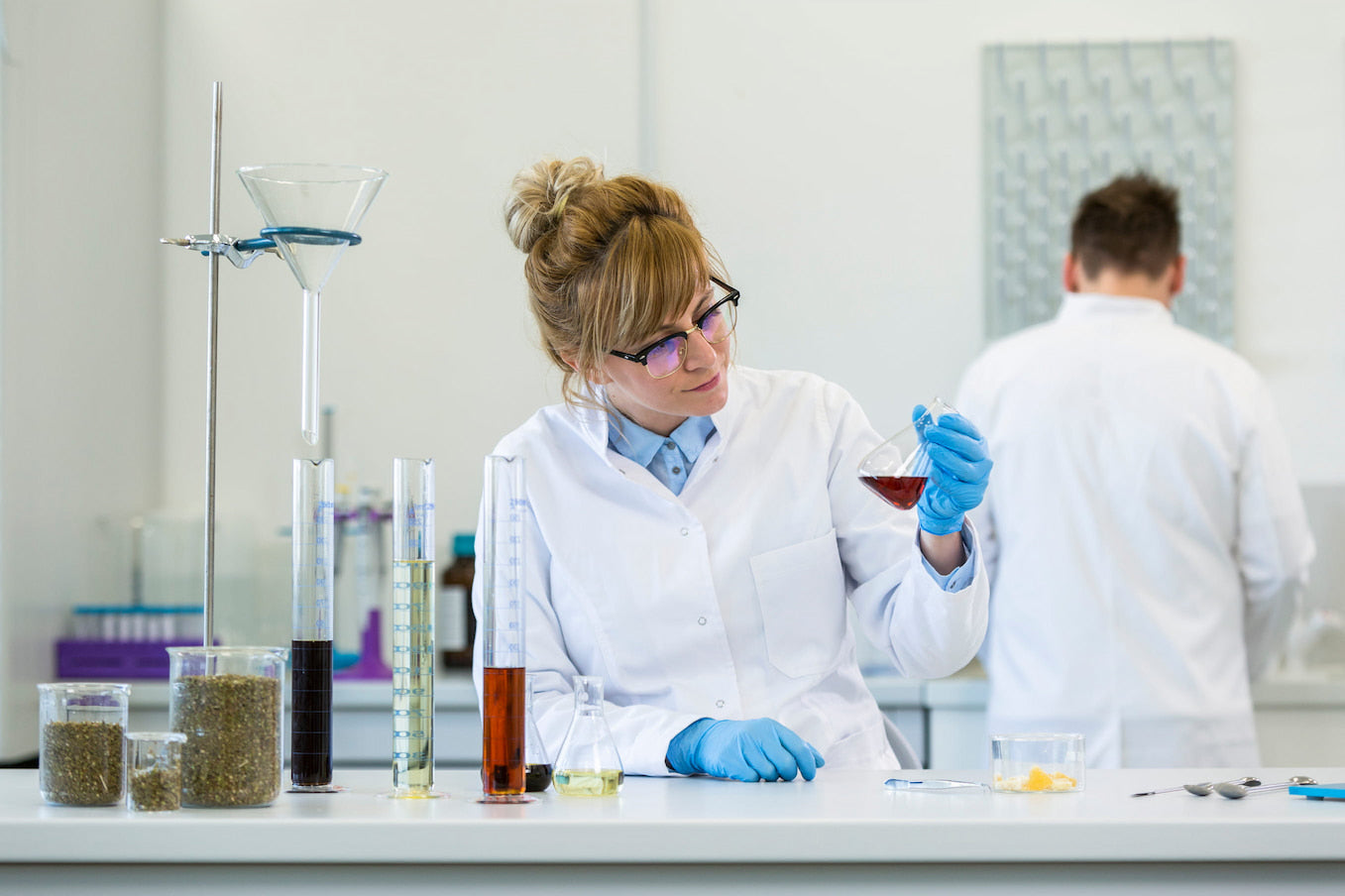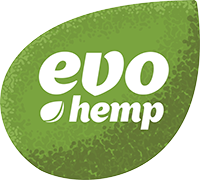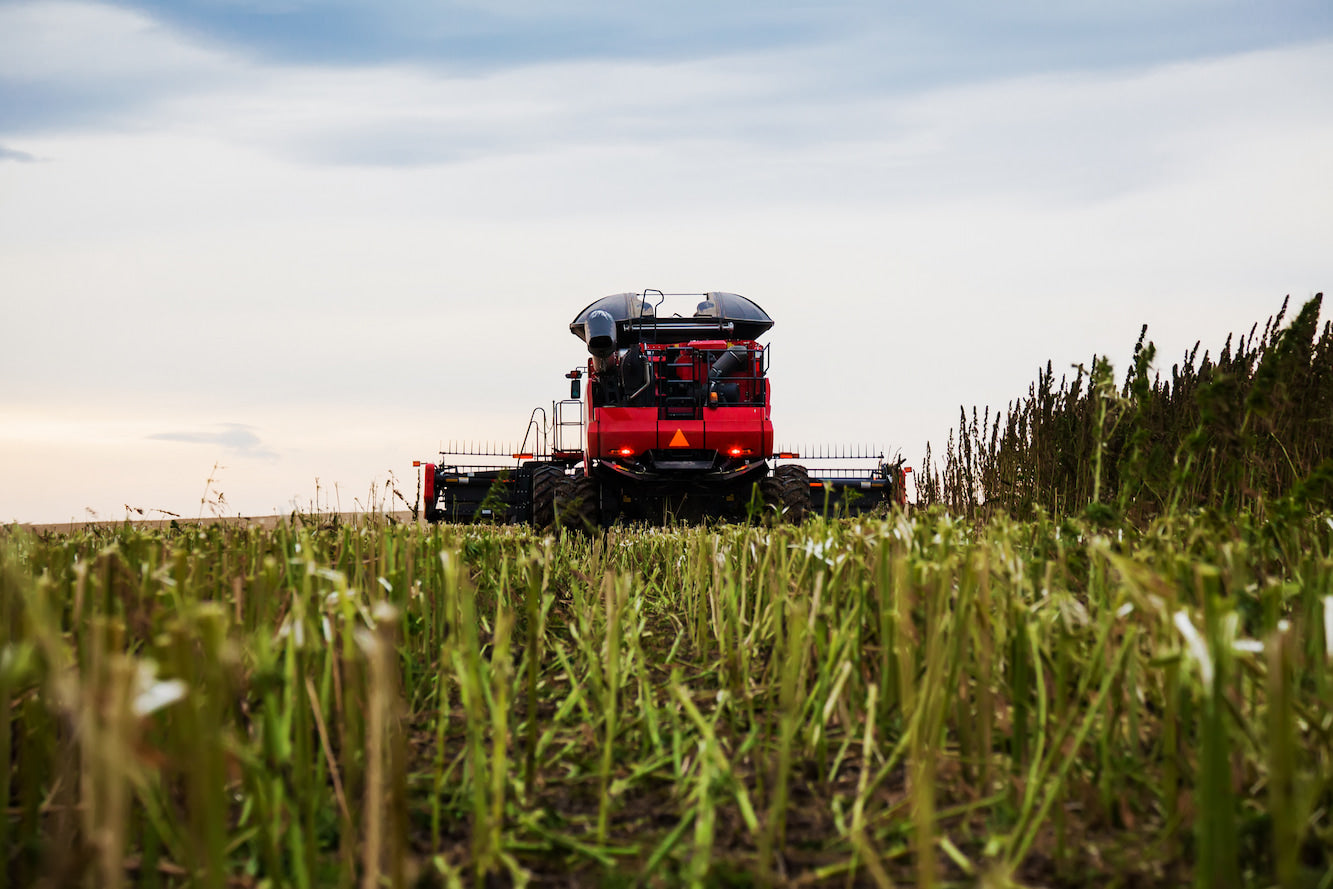Too Much CBD Oil: Is It Possible?

With CBD becoming more and more popular, a common concern is whether it is possible to overdose on CBD.
Let us reassure you: there have been no reports of dangerous CBD overdoses. CBD is extremely safe, even in high dosages.
However, there are certain side effects and symptoms associated with consuming high doses of CBD oil and plenty of reasons to keep your daily intake of CBD supplements within reason.
Read on to learn more about CBD, its benefits, possible side effects, and how to get the most out of your CBD use (hint: less can be more!).
What Is CBD?
CBD, or cannabidiol, is one of over a hundred phytocannabinoids found within the Cannabis Sativa plant. CBD can work within the body’s endocannabinoid system to support your mental and physical well-being in many ways.
CBD also does not produce the psychoactive effects associated with THC–another cannabinoid derived from the cannabis plant. The endocannabinoid system (also known as the ECS) is a complex internal network that sends messages throughout the central and peripheral nervous systems.
The ECS works within the body even if you’ve never used a plant-based cannabinoid such as CBD. This is because the body naturally produces endocannabinoids. These human-based cannabinoids act as the messengers sent throughout the body whenever the ECS senses that our internal equilibrium is out of balance.
After endocannabinoids are produced, they are sent to bind with cannabinoid receptors (or CB receptors) at the source of the imbalance. CB receptors exist in the brain, nervous system, immune cells, muscles, and within the cells and tissues of all major organs.
When cannabinoids bind with CB receptors, the ECS can help regulate and respond to pain signals, mood and emotions, sleep cycles, and a number of other homeostatic processes.
Endocannabinoids are produced on-demand as needed, and then they can also quickly be broken down by enzymes within the body. In this way, the ECS works to restore balance by providing short-term relief throughout the body as needed.
Because the phytocannabinoids of cannabis are structurally similar to our existing endocannabinoids, CBD can partner with the endocannabinoids in the endocannabinoid system to provide support whenever the ECS needs to restore balance.
What Are the Benefits of CBD?
Within the ECS, CBD can help support full body wellness.
Promotes Relaxation
CBD can support endocannabinoids in the brain as they help regulate the mood and promote feelings of calm. The calming properties of CBD can help you destress before an important meeting or project, or help you unwind at night (which can also lead to better sleep!)
Eases Tension
CBD can help soothe physical stress along with emotional stress. When we are experiencing stress, the body can hold that tension in the neck, back, jaws, feet, to name a few.
Luckily, endocannabinoids can bind with CB receptors in those areas to help ease that tension.
Relieves Discomfort
The naturally soothing properties of CBD can support the ECS in relieving sources of physical discomfort.
From irritated skin to swollen joints, CBD can help soothe discomfort as endocannabinoids bind with CB receptors in the muscles, tissues, or skin cells in need of relief.
Is CBD Legal?
While decades of misinformation and fear-mongering led to the banning of CBD for many years, that changed with the passing of the 2018 Farm Bill.
This farm bill declared that CBD is federally legal as long as it is derived from the hemp plant and contains no more than 0.3% THC content in its dry weight.
While hemp and hemp-derived CBD is now legal on the federal level, cannabis is still only legal on a state-by-state basis.
CBD vs. THC
Although CBD and THC have nearly identical molecular structures, they work differently within the body due to a tiny variation in their molecular arrangement.
THC is thought to work more directly with CB1 receptors located in the brain, which is how it produces its psychoactive effects.
Meanwhile CBD plays a more supportive role in the ECS. CBD cannot is not intoxicating and cannot produce psychoactive effects. In fact, CBD balances out THC and can help reduce unwanted effects that stem from a THC-induced high, such as nervousness.
Hemp vs Cannabis
CBD can be extracted from hemp plants or cannabis plants. Both hemp and cannabis strains are varieties of the Cannabis sativa plant species. While closely related, hemp and cannabis are classified quite differently legally.
Under the law, hemp refers to cannabis plants that contain less than 0.3% THC content. Cannabis, then, refers to any variety of the cannabis plant that contains over 0.3% THC content.
Currently, only CBD derived from hemp plants are legal on the federal level. These products must have less than 0.3% THC content in their final product.
If you live in a state where recreational cannabis is legal, you may find CBD products that contain higher levels of THC. In this case, it may be possible to overdose on THC, but this is still unlikely.
THCoverdoses do not lead to death, but it can make you feel…not great.
Always check the label of any CBD product to see if it is derived from hemp or cannabis, and check the percentage of THC. If your product has low levels of THC, you won’t have any risk of overdosing.
A CBD product that includes THC is considered full-spectrum. If you prefer a product with no THC, broad-spectrum or isolated CBD is what you want to be looking for.
Forms of CBD
CBD products come in three varieties: full-spectrum, broad-spectrum, and isolated CBD.
Full-Spectrum CBD
Full-spectrum CBD contains all of the nourishing plant parts found in the hemp plant. When full-spectrum CBD is extracted from the hemp plant, all of the plant's other cannabinoids, aromatic terpenes, and flavonoids remain intact.
While the amount of THC found in full-spectrum CBD products is not enough to produce any psychoactive effects, it does allow for the entourage effect. The entourage effect takes place when all of hemp’s many compound cannabinoidsnaturally interact synergistically to enhance the effects of CBD.
Many people prefer full-spectrum CBD for the added benefits of the entourage effect.
Broad-Spectrum CBD
Broad-SpectrumCBD products have all traces of THC removed during extraction. However, all other plant parts are still included. This allows broad-spectrum CBD to still produce a version of the entourage effect, without any need for concern about THC if that isn’t something you want.
Isolated CBD
Isolated CBD is considered the purest form of CBD. In isolated products, all other plant parts are removed. No other cannabinoids, terpenes, or flavonoids make it into an isolated CBD product; just good ol’ CBD.
Isolated CBD is typically less expensive than other forms of CBD, while also containing the highest concentration of CBD per serving. If you are sensitive to THC or prefer a pure CBD product, CBD isolate may be for you.
Is It Possible to Overdose on THC in Full-Spectrum CBD Products?
Because full-spectrum CBD cannot contain more than 0.3% THC, it is virtually impossible to consume enough to produce psychoactive effects, let alone, overdose.
You would need to consume a higher dose of CBD than is conceivable, and chances are you would start to feel not too hot from the fatty oil content long, long before reaching high enough levels of THC to get high.
The best way to avoid even the unlikeliest possibility of an overdose is to only use high-quality CBD products from companies that are transparent with their Certificates of Analysis.
Because CBD is not regulated by the FDA (Food and Drug Administration), the Certificate of Analysis is how you’ll know that the product was third-party lab tested, and that the ingredients and percentages listed on a product’s label accurately reflect what is inside.
How Much CBD Should I Take?
The best way to start using CBD is to start low and work your way up until you find the right amount of CBD for yourself. This is less about avoiding potential side effects (although that is certainly a plus!) and more about finding what is right for you.
Different people feel the effects of CBD at different amounts due to tolerance. Some people only need ten or so milligrams to feel thoroughly relaxed, while others could use 50 to 70 milligrams before feeling the effects.
We recommend starting with ten milligrams of CBD. Take some time to see how it makes you feel. If it didn’t ease your discomfort or promote the calmness you were hoping for, try 15 to 20 mg the next day. Keep adding five to ten mg at a time until you reach your sweet spot.
Typically, you shouldn’t take more than 100 mg of CBD per day, as this is beyond the amount that most people need to feel the effects.
Once you find an amount that feels right for you, you likely won’t need to increase your dose much. Unlike THC, CBD is thought to present on a bell curve in terms of dosing, which means that once you reach a certain dose, the effects actually begin to decrease.
Basically, more CBD doesn’t lead to stronger effects.
Are There Any Side Effects of CBD?
Almost all side effects associated with CBD result from extremely high doses. While CBD was found to be safe in doses as high as 1,500 mg per day, this is more than you’ll ever need to feel the effects.
The side effects most often associated with CBD are still rare, mild, and usually resolve on their own. Some of the most common symptoms can include:
- Fatigue or drowsiness
- Lightheadedness
- Dry mouth
- Nervousness
- Nausea
- Diarrhea
CBD may also have negative interactions with certain medications and prescriptions, such as blood thinners and blood pressure medications. If you are taking any regular medication, check in with your healthcare provider before using CBD.
If you do feel any adverse side effects after taking CBD, try to take a few deep breaths, drink water, and remember that even THCoverdoses have never been fatal. Of course, if you are feeling under the weather, it is best to check in with a doctor to be on the safe side!
But if you are taking a recommended amount of a third-party tested product, severe reactions are virtually unheard of. You are much more likely to simply feel relaxed and de-tensed.
How Can I Take CBD?
CBD oils are perhaps the most common way to enjoy CBD. Oils come in a bottle with a dropper, allowing you to easily control your own dose. For faster relief, you can take CBD oil sublingually by holding a few drops under your tongue for 90 seconds before swallowing.
Our water-soluble CBD powder is another great starter option. The powder can be easily measured to help you find the right dose for you. And, unlike most forms of CBD, this powder doesn’t need fat to help break it down. Instead, you can mix the powder directly into just about any food or drink, and you are good to go!
CBD consumables like flavored CBD gummies or softgels can make getting a consistent dose of CBD a breeze.
As for a THC-free option, our pure CBD crystals are the real deal! These crystals are easily digestible and dissolve food or drink in a pinch.
evo hemp’s CBD
At evo hemp, we pride ourselves on using only high-quality CBD derived from hemp that is sourced ethically and sustainably. Our products are all labeled with serving sizes and instructions, so you’ll never have to guess how much you can safely use.
Ready to enjoy the benefits of CBD yourself? Check out our collection at the evo hemp Shop!
Sources
- Tags: CBD



